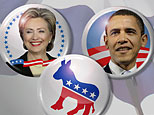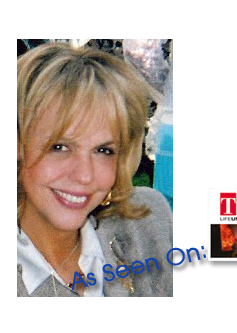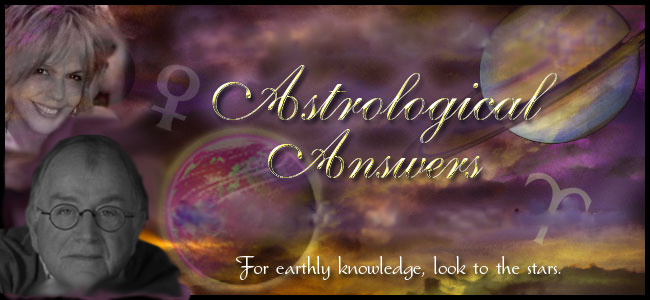 I got this from a colleague today-I was too busy to read The New York Times myself-but thank God my friend did. I am reprinting this here because Frank Rick is in alignment with what the astrological charts are telling me about the Presidential Election, especially about the “anything goes to win the nomination” by Bill and Hillary Clinton. What they can’t stand is that the momentum has shifted drastically toward Barack Obama. What they can’t accept is that he is going to win the Democratic nomination for President of the United States-unless they pull a George Bush and steal the election with the Super Delegates that Hillary is going to pressure to swing the election to her.
I got this from a colleague today-I was too busy to read The New York Times myself-but thank God my friend did. I am reprinting this here because Frank Rick is in alignment with what the astrological charts are telling me about the Presidential Election, especially about the “anything goes to win the nomination” by Bill and Hillary Clinton. What they can’t stand is that the momentum has shifted drastically toward Barack Obama. What they can’t accept is that he is going to win the Democratic nomination for President of the United States-unless they pull a George Bush and steal the election with the Super Delegates that Hillary is going to pressure to swing the election to her.
Ladies and gentlemen of the jury, the pendulum is swinging away from the Clintons and toward a man of change, Barack Obama.
Next Up for the Democrats: Civil War
By Frank Rich
The New York Times
Sunday 10 February 2008
What if a presidential candidate held what she billed as “the largest, most interactive town hall in political history” on national television, and no one noticed?
The untold story in the run-up to Super Tuesday was Hillary Clinton’s elaborate live prime-time special the night before the vote. Presiding from a studio in New York, the candidate took questions from audiences in 21 other cities. She had plugged the event four days earlier in the last gasp of her debate with Barack Obama and paid a small fortune for it: an hour of time on the Hallmark Channel plus satellite TV hookups for the assemblies of supporters stretching from coast to coast.
The same news media that constantly revisited the Oprah-Caroline-Maria rally in California ignored “Voices Across America: A National Town Hall.” The Clinton campaign would no doubt attribute this to press bias, but it scrupulously designed the event to avoid making news. Like the scripted ” Ask President Bush” sessions during the 2004 campaign, this town hall seemed to unfold in Stepford. The anodyne questions (”What else would you do to help take care of our veterans?”) merely cued up laundry lists of talking points. Some in attendance appeared to trance out.
But I’m glad I watched every minute, right up until Mrs. Clinton was abruptly cut off in midsentence so Hallmark could resume its previously scheduled programming (a movie promising “A Season for Miracles,” aptly enough). However boring, this show was a dramatic encapsulation of how a once-invincible candidate ended up in a dead heat, crippled by poll-tested corporate packaging that markets her as a synthetic product leeched of most human qualities. What’s more, it offered a naked preview of how nastily the Clintons will fight, whatever the collateral damage to the Democratic Party, in the endgame to come.
For a campaign that began with tightly monitored Web ” chats” and then planted questions at its earlier town-hall meetings, a Bush-style pseudo-event like the Hallmark special is nothing new, of course. What’s remarkable is that instead of learning from these mistakes, Mrs. Clinton’s handlers keep doubling down.
Less than two weeks ago she was airlifted into her own, less effective version of “Mission Accomplished.” Instead of declaring faux victory in Iraq, she starred in a made-for-television rally declaring faux victory in a Florida primary that was held in defiance of party rules, involved no campaigning and awarded no delegates. As Andrea Mitchell of NBC News said, it was “the Potemkin village of victory celebrations.”
The Hallmark show, enacted on an anachronistic studio set that looked like a deliberate throwback to the good old days of 1992, was equally desperate. If the point was to generate donations or excitement, the effect was the reverse. A campaign operative, speaking on MSNBC, claimed that 250,000 viewers had seen an online incarnation of the event in addition to “who knows how many” Hallmark channel viewers. Who knows, indeed? What we do know is that by then the “Yes We Can” Obama video fronted by the hip-hop vocalist will.i.am of the Black Eyed Peas had been averaging roughly a million YouTube views a day. (Cost to the Obama campaign: zero.)
Two days after her town-hall extravaganza, Mrs. Clinton revealed the $5 million loan she had made to her own campaign to survive a month in which the Obama operation had raised $32 million to her $13.5 million. That poignant confession led to a spike in contributions that Mr. Obama also topped. Though Tuesday was largely a draw in popular votes and delegates, every other indicator, from the candidates’ real and virtual crowds to hard cash, points to a steadily widening Obama-Clinton gap. The Clinton campaign might be an imploding Potemkin village itself were it not for the fungible profits from Bill Clinton’s murky post-presidency business deals. (The Clintons, unlike Mr. Obama, have not released their income-tax returns.)
The campaign’s other most potent form of currency remains its thick deck of race cards. This was all too apparent in the Hallmark show. In its carefully calibrated cross section of geographically and demographically diverse cast members - young, old, one gay man, one vet, two union members - African-Americans were reduced to also-rans. One black woman, the former TV correspondent Carole Simpson, was given the servile role of the meeting’s nominal moderator, Ed McMahon to Mrs. Clinton’s top banana. Scattered black faces could be seen in the audience. But in the entire televised hour, there was not a single African-American questioner, whether to toss a softball or ask about the Clintons’ own recent misadventures in racial politics.
The Clinton camp does not leave such matters to chance. This decision was a cold, political cost-benefit calculus. In October, seven months after the two candidates’ dueling church perorations in Selma, USA Today found Hillary Clinton leading Mr. Obama among African-American Democrats by a margin of 62 percent to 34 percent. But once black voters met Mr. Obama and started to gravitate toward him, Bill Clinton and the campaign’s other surrogates stopped caring about what African-Americans thought. In an effort to scare off white voters, Mr. Obama was ghettoized as a cocaine user (by the chief Clinton strategist, Mark Penn, among others), “the black candidate” (as Clinton strategists told the Associated Press) and Jesse Jackson redux (by Mr. Clinton himself).
The result? Black America has largely deserted the Clintons. In her California primary victory, Mrs. Clinton drew only 19 percent of the black vote. The campaign saw this coming and so saw no percentage in bestowing precious minutes of prime-time television on African-American queries.
That time went instead to the Hispanic population that was still in play in Super Tuesday’s voting in the West. Mayor Antonio Villaraigosa of Los Angeles had a cameo, and one of the satellite meetings was held in the National Hispanic Cultural Center in Albuquerque. There’s nothing wrong with that. It’s smart politics, especially since Mr. Obama has been behind the curve in wooing this constituency.
But the wholesale substitution of Hispanics for blacks on the Hallmark show is tainted by a creepy racial back story. Last month a Hispanic pollster employed by the Clinton campaign pitted the two groups against each other by telling The New Yorker that Hispanic voters have “not shown a lot of willingness or affinity to support black candidates.” Mrs. Clinton then seconded the motion by telling Tim Russert in a debate that her pollster was “making a historical statement.”
It wasn’t an accurate statement, historical or otherwise. It was a lie, and a bigoted lie at that, given that it branded Hispanics, a group as heterogeneous as any other, as monolithic racists. As the columnist Gregory Rodriguez pointed out in The Los Angeles Times, all three black members of Congress in that city won in heavily Latino districts; black mayors as various as David Dinkins in New York in the 1980s and Ron Kirk in Dallas in the 1990s received more than 70 percent of the Hispanic vote. The real point of the Clinton campaign’s decision to sow misinformation and racial division, Mr. Rodriguez concluded, was to “undermine one of Obama’s central selling points, that he can build bridges and unite Americans of all types.”
If that was the intent, it didn’t work. Mrs. Clinton did pile up her expected large margin among Latino voters in California. But her tight grip on that electorate is loosening. Mr. Obama, who captured only 26 percent of Hispanic voters in Nevada last month, did better than that in every state on Tuesday, reaching 41 percent in Arizona and 53 percent in Connecticut. Meanwhile, the Clinton campaign’s attempt to drive white voters away from Mr. Obama by playing the race card has backfired. His white vote tally rises every week. Though Mrs. Clinton won California by almost 10 percentage points, among whites she beat Mr. Obama by only 3 points.
The question now is how much more racial friction the Clinton campaign will gin up if its Hispanic support starts to erode in Texas, whose March 4 vote it sees as its latest firewall. Clearly it will stop at little. That’s why you now hear Clinton operatives talk ever more brazenly about trying to reverse party rulings so that they can hijack 366 ghost delegates from Florida and the other rogue primary, Michigan, where Mr. Obama wasn’t even on the ballot. So much for Mrs. Clinton’s assurance on New Hampshire Public Radio last fall that it didn’t matter if she alone kept her name on the Michigan ballot because the vote “is not going to count for anything.”
Last month, two eminent African-American historians who have served in government, Mary Frances Berry (in the Carter and Clinton years) and Roger Wilkins (in the Johnson administration), wrote Howard Dean, the Democrats’ chairman, to warn him of the perils of that credentials fight. Last week, Mr. Dean became sufficiently alarmed to propose brokering an “arrangement” if a clear-cut victory by one candidate hasn’t rendered the issue moot by the spring. But does anyone seriously believe that Howard Dean can deter a Clinton combine so ruthless that it risked shredding three decades of mutual affection with black America to win a primary?
A race-tinged brawl at the convention, some nine weeks before Election Day, will not be a Hallmark moment. As Mr. Wilkins reiterated to me last week, it will be a flashback to the Democratic civil war of 1968, a suicide for the party no matter which victor ends up holding the rancid spoils.
About Albert Clayton Gaulden
Counselor, astro-intuitive, author, lecturer, spiritual life coach and founding director of the Sedona Intensive, Albert Clayton Gaulden has influenced countless individuals from all walks of life-actors, athletes, financial specialists, teachers, families, psychologists and psychiatrists-from all corners of the earth-helping them to retrieve their authentic selves and to tap into the inner core of their power. Albert’s unique gift in the field of Transpersonal Psychology is responsible for his fearlessness when confronting the client’s inner conflicts. In his recent book You’re Not Who You Think You Are, Gaulden writes “Men and women are the same; each of us needs to get in touch with our invisible partner, or shadow in order to be emotionally healthy and happy.”




